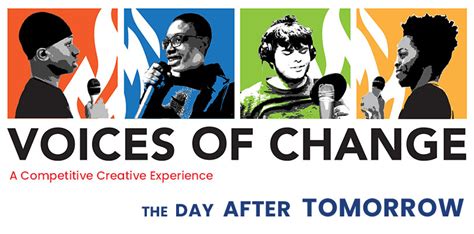In today’s fast-paced and interconnected world, social activism has become a powerful force for driving positive change. From grassroots movements to global campaigns, individuals and communities are harnessing the power of activism to address pressing social issues and advocate for meaningful reform. In this blog post, we will embark on a journey into the realm of social activism, exploring the roots of this transformative movement and the role it plays in shaping our society. We will delve into the power of social media as a vital tool for promoting activism, highlighting the voices of inspirational activists and empowering the next generation of changemakers. We will also discuss the challenges and barriers faced by activists and the creative strategies they employ to overcome them. Join us as we unravel the personal transformation of the social activist and uncover the strategies and alliances that drive effective and lasting change. This is Voices of Change: A Journey into Social Activism.
Table of Contents
Understanding the Power of Social Activism
Social activism is a powerful force for positive change in society. It is the collective action of individuals and groups who advocate for social, political, and environmental justice. Activists work to address systemic issues and promote equality, often through demonstrations, protests, and grassroots organizing. Social activism is rooted in the belief that change is possible and that individuals have the power to make a difference.
Activism can take many forms, from online advocacy to community organizing to direct action. It is a way for individuals to express their values and work towards a more just and equitable world. Social activism is often fueled by passion and a desire to create a better future for all people, regardless of race, gender, or socioeconomic status.
One of the essential aspects of understanding the power of social activism is recognizing the importance of amplifying marginalized voices. It is crucial to uplift the stories and experiences of those who have been historically oppressed or silenced. By centering the voices of those most affected by social injustice, activists can create more inclusive and effective movements for change.
In conclusion, understanding the power of social activism involves recognizing the potential for individuals and communities to create positive change, amplifying marginalized voices, and working towards a more just and equitable world for all.
Exploring the Roots of Social Activism
Social activism has a rich history that dates back to ancient times, with individuals and groups advocating for societal change in various forms. The roots of social activism can be traced to movements such as the abolition of slavery, women’s suffrage, and civil rights, which have paved the way for contemporary forms of activism.
Throughout history, social activism has been driven by a desire to challenge injustices and inequalities, with advocates leveraging various strategies to effect change. From peaceful protests and advocacy campaigns to grassroots organizing and community mobilization, the roots of social activism are deeply embedded in the pursuit of justice and equality.
Moreover, the roots of social activism are intertwined with the collective efforts of individuals and communities to address systemic issues and promote social change. Whether through political action, cultural expression, or grassroots organizing, the foundations of social activism are rooted in the resilience and determination of those who seek to challenge the status quo and create a more just society.
As we continue to explore the roots of social activism, it is essential to recognize the diverse and intersectional nature of activism, encompassing issues such as racial justice, environmental sustainability, LGBTQ+ rights, and more. By understanding the historical context and evolution of social activism, we can gain insight into the lessons learned from past movements and apply them to present-day efforts for social change.
The Role of Social Media in Promoting Activism
Social media has undeniably become a powerful force in driving activism and social change. Platforms such as Facebook, Twitter, and Instagram have provided a space for individuals to voice their opinions, connect with like-minded individuals and raise awareness about important social issues. In recent years, social media has played a crucial role in mobilizing grassroots movements and bringing attention to injustices around the world.
One of the key strengths of social media in promoting activism is its ability to reach a wide audience in a short amount of time. With just a single post, a message can be shared and amplified across the internet, sparking conversations and inspiring action. The viral nature of social media allows for information to spread rapidly, making it an effective tool for raising awareness and building momentum for social causes.
In addition to its outreach potential, social media also provides a platform for marginalized voices to be heard. Historically underrepresented groups, such as people of color, LGBTQ+ individuals, and indigenous communities, have used social media to share their experiences and advocate for their rights. Through hashtags, live videos, and personal stories, social media has amplified the voices of those who have been silenced or ignored by traditional media outlets.
Furthermore, social media has facilitated the organization and coordination of large-scale protests and campaigns. Activists are able to use social media to promote events, share information, and mobilize supporters. The ability to connect with a global network of individuals has made it easier for activists to plan and execute impactful demonstrations, resulting in increased visibility and public engagement.
Highlighting the Voices of Inspirational Activists
Highlighting the Voices of Inspirational Activists: In today’s world, where social issues are prevalent and often contentious, it is important to recognize and celebrate the work of individuals who are making a positive impact on their communities and the world at large. Inspirational activists are those who have dedicated their lives to promoting positive change, whether it be through environmental advocacy, civil rights activism, or social justice initiatives. These individuals serve as beacons of hope and catalysts for progress, inspiring others to join them in their noble pursuits.
One such inspirational activist is Malala Yousafzai, the Pakistani education advocate who survived a Taliban assassination attempt and went on to become the youngest-ever Nobel Prize laureate. Her bravery and unwavering commitment to girls’ education has touched the hearts of people around the world, igniting a global movement to ensure that all children have access to quality schooling. Malala’s powerful voice and resilience in the face of adversity make her a true inspiration to activists everywhere.
Another remarkable activist who deserves recognition is Greta Thunberg, the Swedish environmental activist who has gained international acclaim for her efforts to combat climate change. Despite facing skepticism and criticism from some quarters, Greta has remained steadfast in her mission to raise awareness about the urgent need for environmental action. Her passionate speeches and youth-led climate strikes have galvanized millions of young people to demand action from world leaders, sparking a new wave of environmental activism.
Highlighting the voices of inspirational activists serves as a reminder that positive change is possible, and that each individual has the power to make a difference. These remarkable individuals inspire us to be proactive in our communities, to speak out against injustice, and to work towards a better, more equitable world for all. By celebrating the accomplishments and contributions of inspirational activists, we can amplify their voices and further their causes, ultimately creating a more just and compassionate society for future generations.
Empowering Youth: The Future of Social Activism
In today’s world, the role of youth in social activism cannot be underestimated. As young people become increasingly aware of the issues affecting their communities and the world at large, they are stepping up to take action and create positive change. Empowering youth is crucial for the future of social activism as they bring fresh perspectives, innovative ideas, and boundless energy to the table.
By providing youth with the resources, knowledge, and support they need, we can ensure that they are equipped to make a meaningful impact on the world around them. This includes opportunities for youth to develop leadership skills, engage in advocacy and activism training, and connect with like-minded peers who share their passion for creating positive change.
Additionally, it is important to recognize that youth are not just the leaders of tomorrow – they are also powerful change-makers today. Encouraging youth to take an active role in social activism sends a powerful message that their voices are valued and that they have the potential to drive meaningful progress on the issues that matter most to them.
As we look to the future of social activism, it is clear that youth will play a central role in shaping the world we live in. By empowering youth and fostering a culture of activism and advocacy among young people, we can ensure that the future is brighter and more equitable for all.
Overcoming Barriers: Navigating Challenges in Activism
Overcoming barriers and navigating challenges in activism can be a daunting task, but it is essential for creating meaningful change in society. Whether it’s facing opposition from powerful institutions, dealing with limited resources, or encountering resistance from the public, activists must be resilient and adaptive in order to overcome these obstacles.
One of the biggest challenges in activism is the lack of support from the general public. Many activists face skepticism and apathy from those who are not directly affected by the issues they are trying to address. This can make it difficult to build momentum and gather the necessary support for creating impactful change.
In addition to public skepticism, activists also often face opposition from those in positions of power. Whether it’s the government, corporations, or other influential organizations, these entities often have a vested interest in maintaining the status quo, making it difficult for activists to push for meaningful change.
Furthermore, limited resources can also pose a significant barrier to activism. Without sufficient funding, access to tools and resources, or organizational support, activists may struggle to execute their strategies effectively and reach their goals.
Unleashing Creativity: Art as a Tool for Social Change
Art has always been a powerful tool for social change, providing a platform for individuals to express their thoughts, emotions, and experiences in visually compelling ways. Whether it’s through paintings, sculptures, or other creative mediums, art has the ability to spark conversations, raise awareness, and inspire action.
By tapping into the creativity of artists, social activists can leverage the power of art to bring attention to important social issues. Art has the unique ability to transcend language barriers and connect with people on a visceral level, making it a valuable tool for addressing complex social problems.
Through art, activists can create thought-provoking pieces that challenge societal norms, provoke critical thinking, and foster empathy. Art exhibitions, installations, and public performances can serve as powerful platforms for shining a spotlight on social injustices and driving conversations about potential solutions.
Art as a tool for social change is not limited to traditional forms of art. In today’s digital age, social media platforms have provided a new canvas for artists and activists to collaborate and create meaningful change. From viral campaigns to digital art installations, the online space has become a vibrant hub for artistic expression and activism.
Creating Lasting Impact: Strategies for Effective Activism
When it comes to creating lasting impact through activism, it’s important to have a well-thought-out strategy in place. One of the key strategies for effective activism is to educate and raise awareness about the issues at hand. This can be done through various means such as social media campaigns, community events, and education programs.
Another important strategy is to build alliances and collaborate with like-minded individuals and organizations. By working together, activists can pool resources, expertise, and networks to create a greater impact.
Furthermore, it’s crucial to advocate for policy change and engage with lawmakers and government officials. By influencing policy, activists can create long-lasting change that can benefit society as a whole.
Overall, creating lasting impact through activism requires a combination of education, collaboration, and advocacy in order to bring about meaningful and sustainable change.
Building Alliances: Collaborating for Social Justice
Collaborating with like-minded individuals and organizations is crucial in the fight for social justice. In a world where inequality and injustice prevail, forming alliances is essential to create a unified front for positive change. By partnering with others who share the same values and goals, activists can amplify their impact and reach a wider audience.
Building alliances allows activists to pool resources, expertise, and support to tackle complex social issues effectively. Through collaboration, different groups can bring diverse perspectives and skills to the table, resulting in innovative solutions and strategies for promoting social justice.
Moreover, forming alliances fosters a sense of solidarity and community among activists. It provides a platform for individuals and organizations to share their experiences, knowledge, and best practices, ultimately strengthening the collective efforts towards achieving social justice.
By working together, activists can leverage their combined influence to advocate for policy changes, raise awareness, and mobilize communities to address systemic injustices. Building alliances is not just about creating temporary partnerships, but about nurturing long-term relationships that can sustain and advance the pursuit of social justice.
The Personal Transformation of the Social Activist
Being a social activist is not just about creating change in the world, it often involves a personal transformation within oneself. Social activism challenges individuals to examine their own beliefs, values, and biases, and to confront the systems of power and oppression that exist within society.
As activists engage in the work of advocating for social justice and equality, they often undergo a process of self-discovery and growth. They become more aware of their own privilege and the ways in which they may have contributed to the very issues they are fighting against. This self-reflection can be a difficult and uncomfortable, but it is an essential part of the personal transformation that comes with being a social activist.
Furthermore, the act of standing up for what is right and challenging the status quo can lead to feelings of empowerment and resilience. Activists often find a sense of purpose and fulfillment in their work, and this can have a profound impact on their mental, emotional, and spiritual well-being. Through solidarity and community-building, they find support and inspiration in others who share their passion for social change.
Ultimately, the personal transformation of the social activist is a journey of growth, learning, and empowerment. It is a process that requires courage, vulnerability, and a willingness to continually challenge oneself and strive for greater understanding and empathy. And as individuals transform, so too does the collective movement for social change, leading to a more inclusive and equitable society for all.






